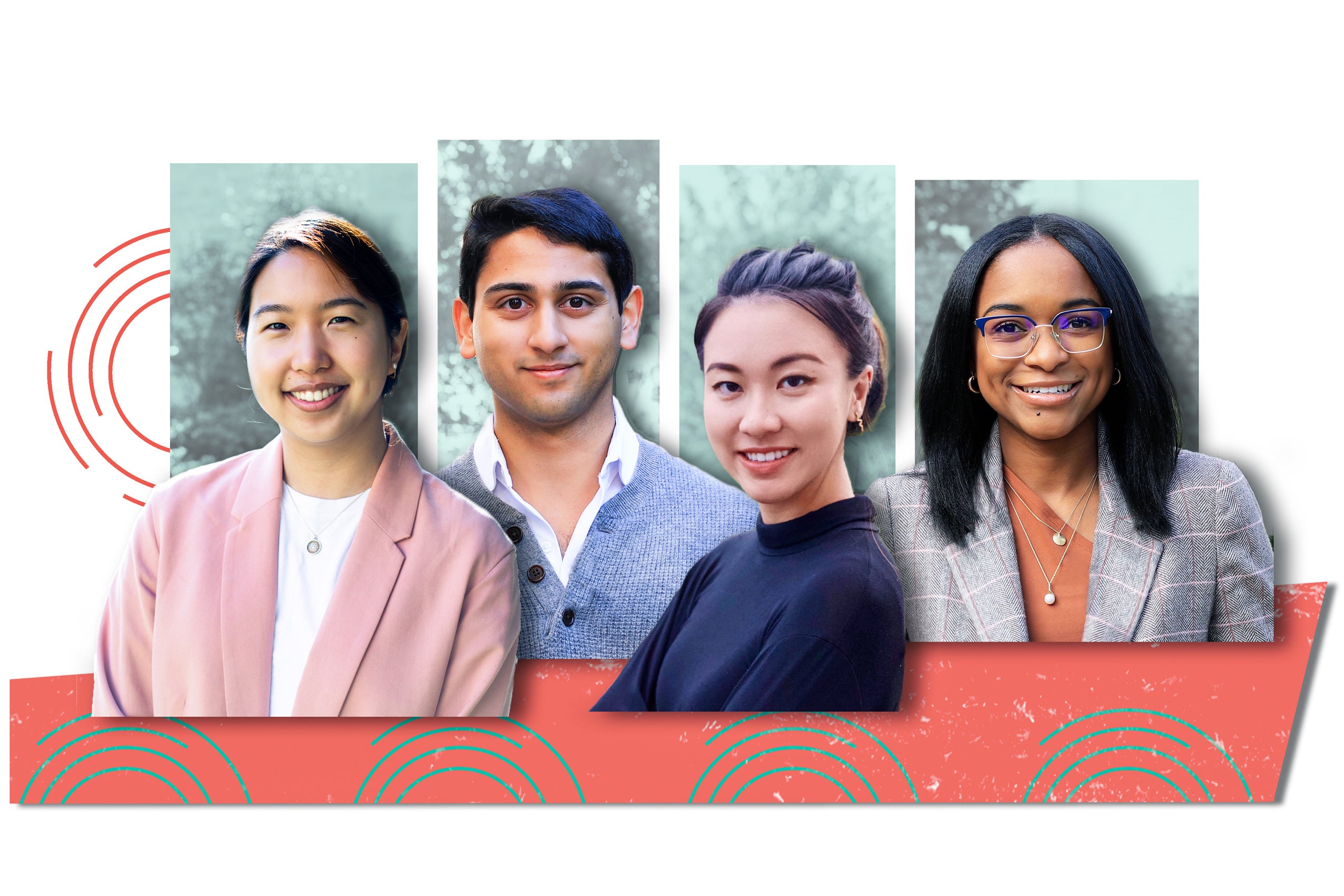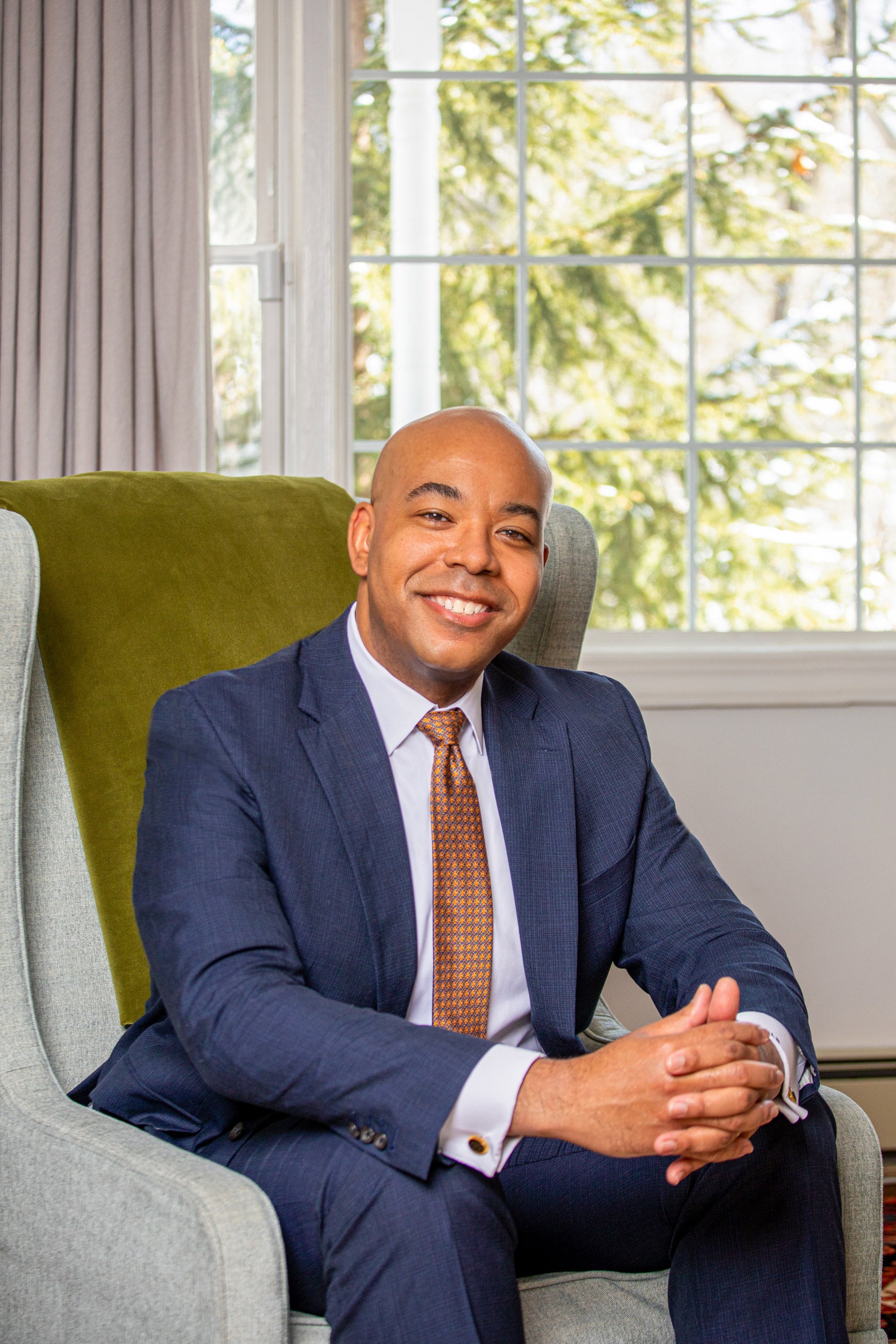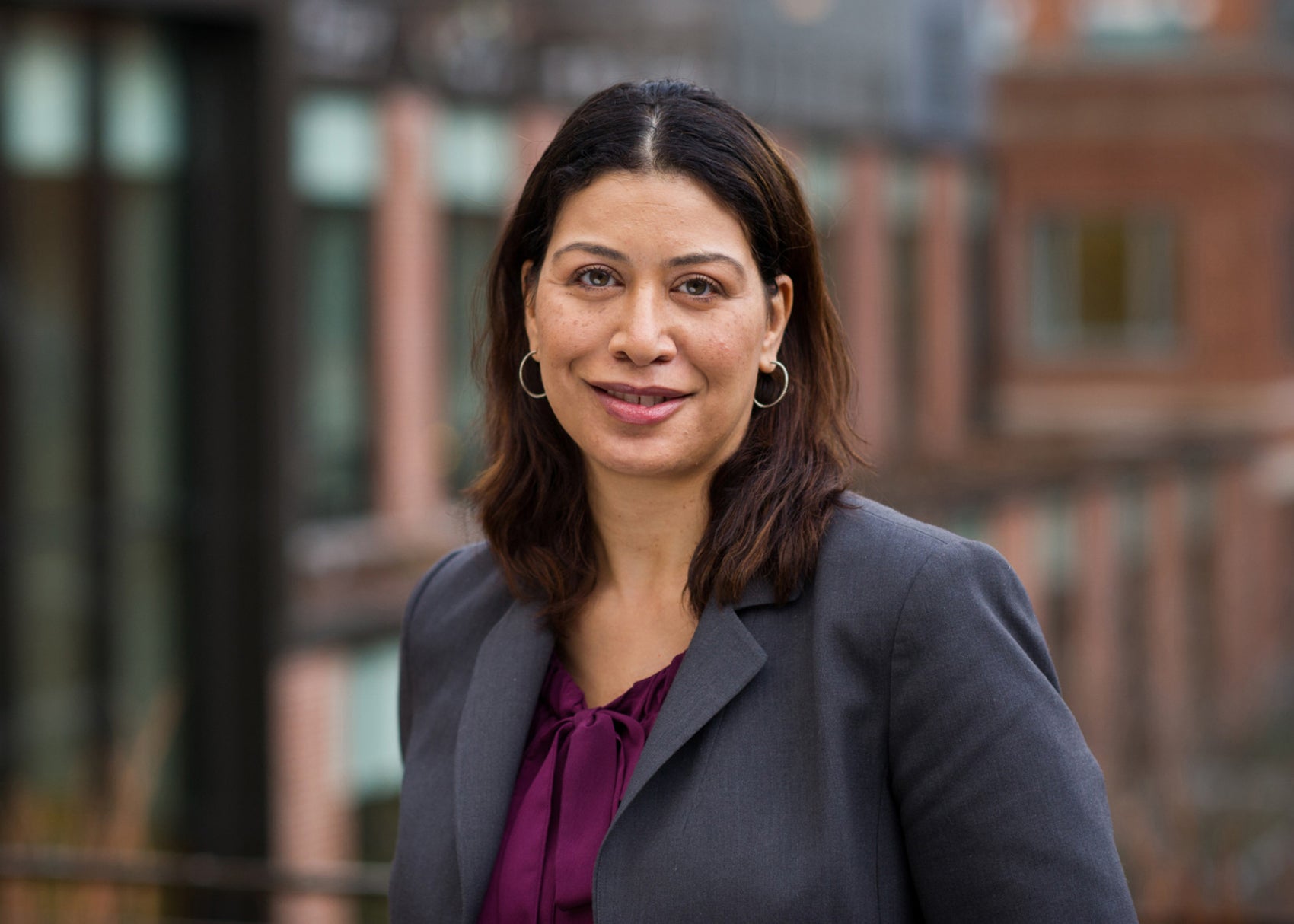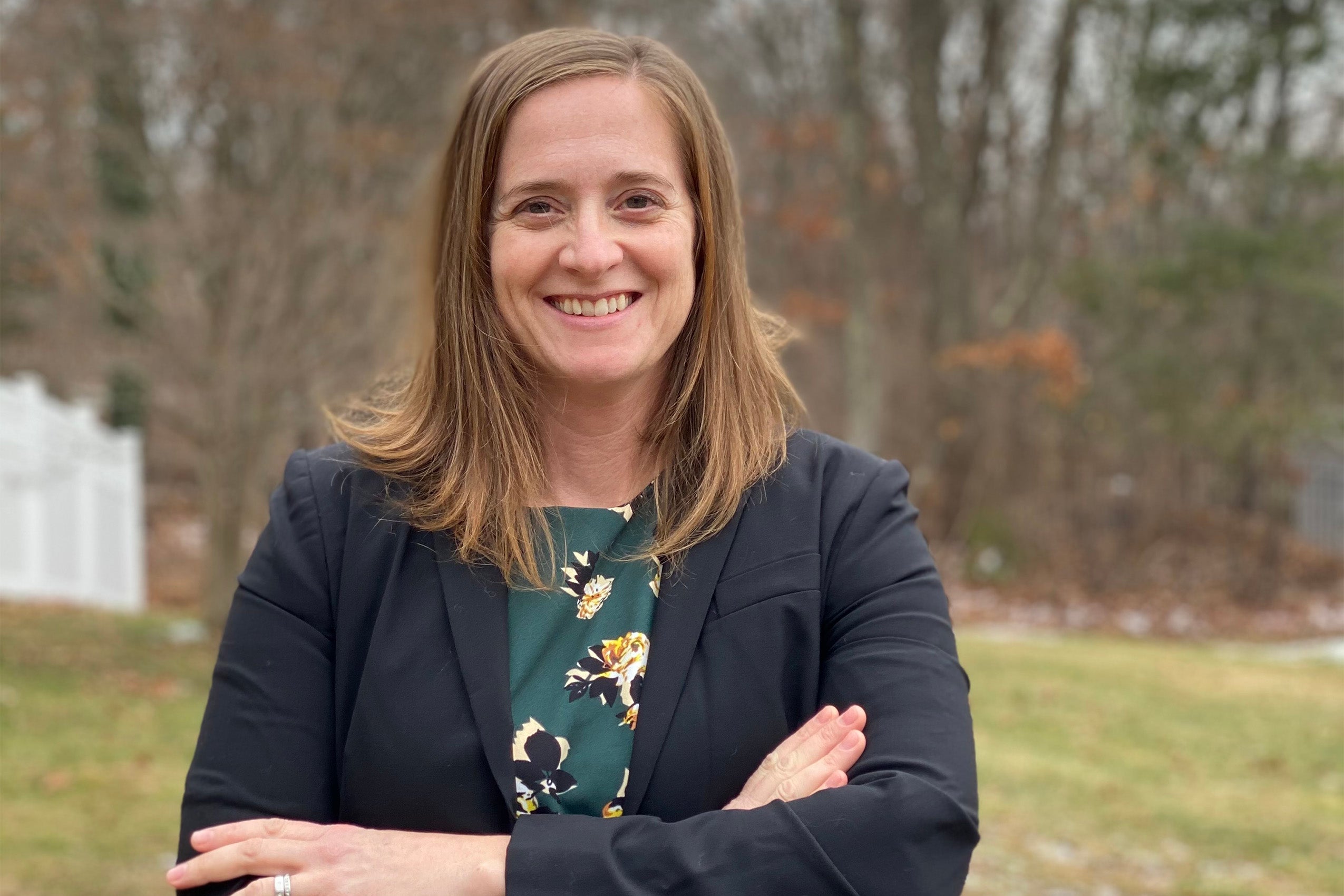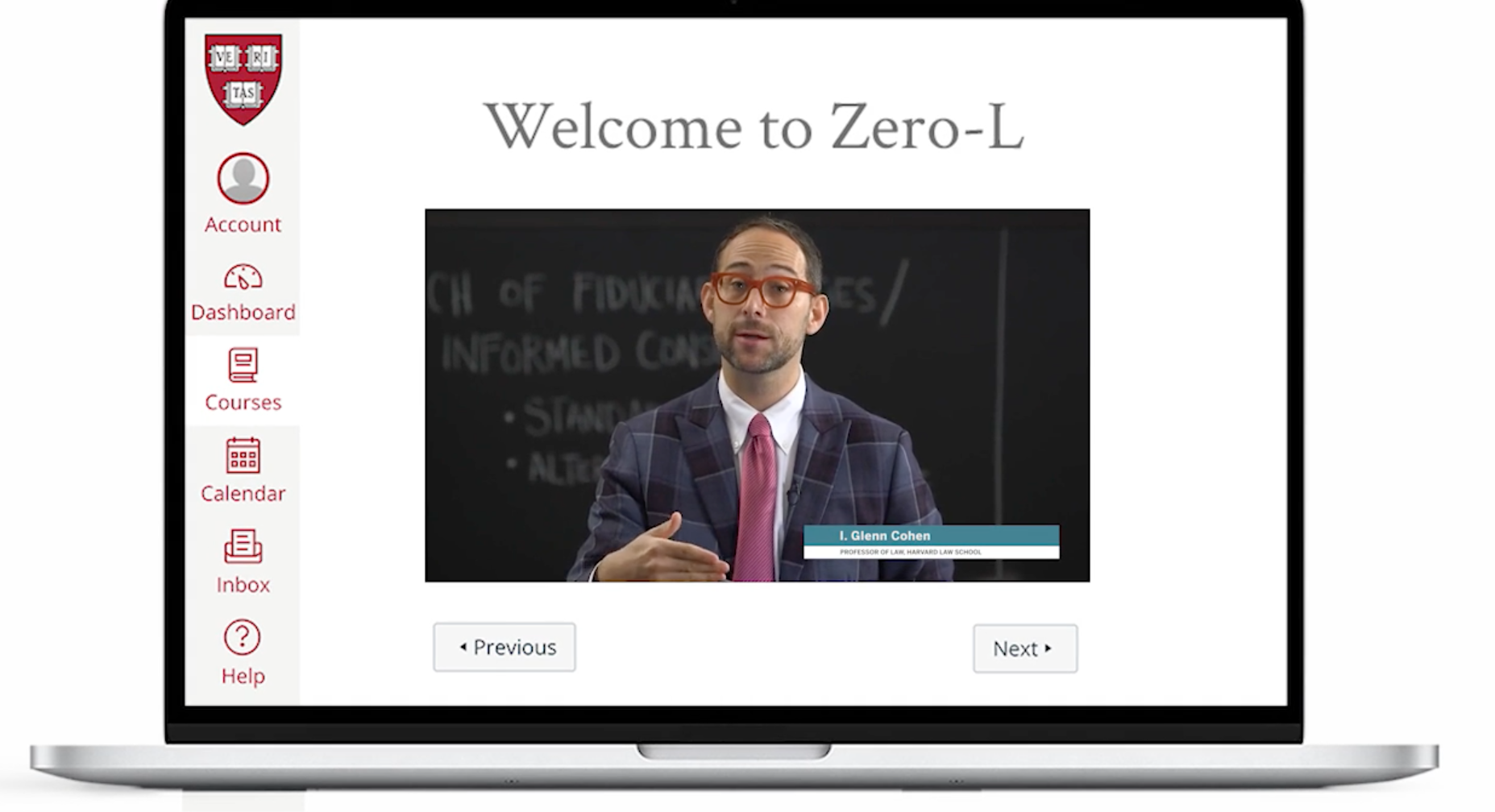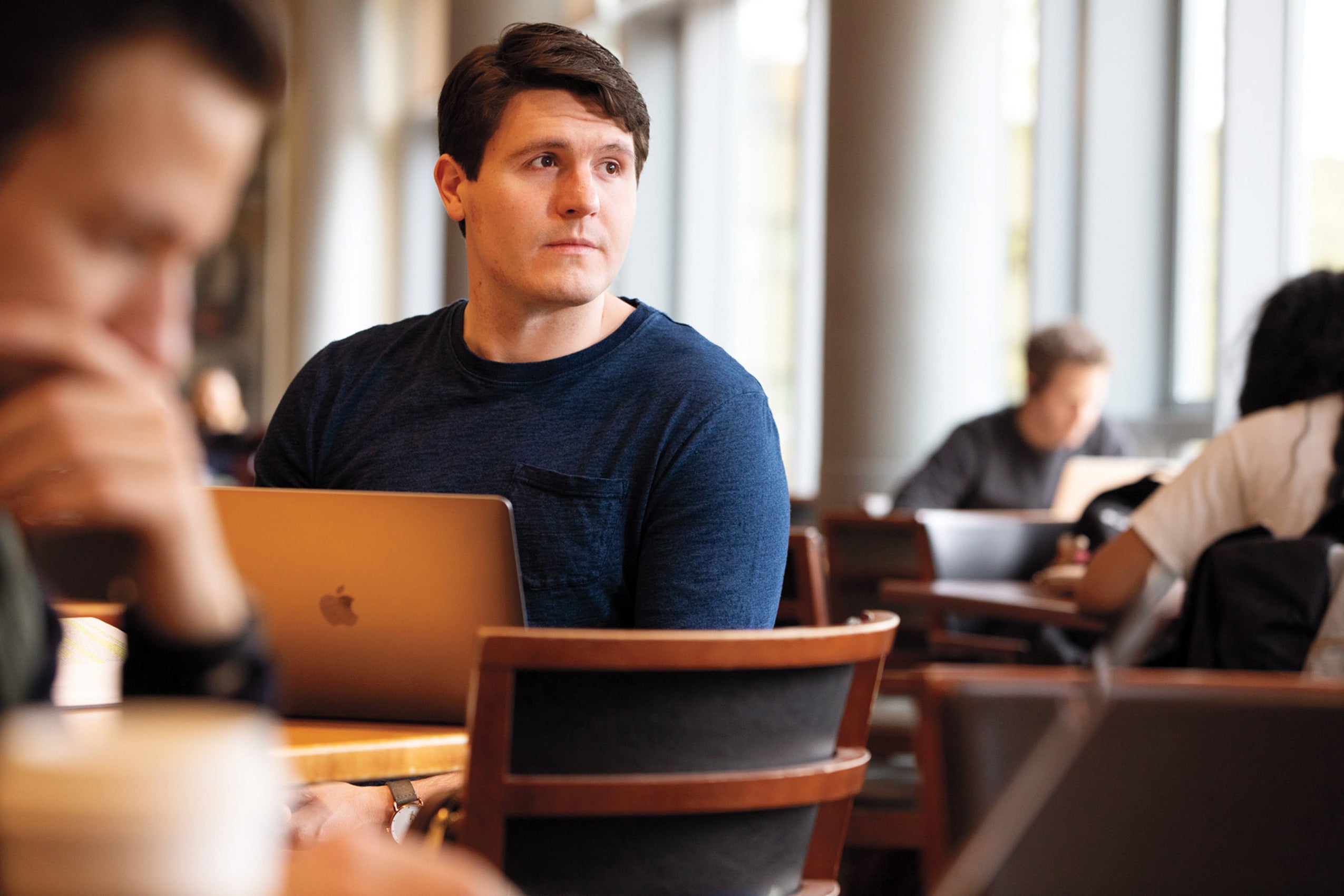People
Jessica Soban
-
Monica E. Monroe named assistant dean for community engagement, equity, and belonging
February 3, 2022
Monica E. Monroe has been named Harvard Law School’s new assistant dean for community engagement, equity, and belonging.
-
An interview for a job she didn’t apply for turned out to be a career-defining opportunity for Natasha Onken, who has since devoted her life to helping students succeed.
-
Harvard makes online course for incoming students available to all law schools for free this summer
May 20, 2020
Amid COVID-19, Harvard Law School will offer Zero-L this year for free to any interested U.S. law school to help them and their incoming students bolster student success rates and overcome COVID-related pre-matriculation educational challenges.
-
Common Knowledge
August 28, 2019
Harvard Law School’s new online course Zero-L helps prime incoming students for success
-
Harvard Law School’s incoming class of students will get a head start on their legal studies this summer. The school will soon launch the second iteration of its Zero-L program—a first-of-its kind curriculum of online courses designed to give new students some legal basics and a roadmap of what to expect once they arrive on campus. I caught up with professor Glenn Cohen, who developed Zero-L with associate dean for strategic initiatives Jessica Soban at the direction of Dean John Manning, to talk about the program and how it’s evolving after the pilot last summer.
-
Takeaways from Harvard Law’s Admissions Experiment
August 27, 2018
...Now that the school has admitted the first cohort of students under the GRE and expanded deferral programs, I rang up associate dean for strategic initiatives and admissions Jessica Soban to see how it went. She gave an enthusiastic thumbs up to both initiatives. Here's what Soban told me about the GRE pilot. "We had a lot of theories going in about what populations might find this to be an interesting option. What we found was exactly that. Our GRE pool of applicants was more likely to be international, and more likely to have significant work experience. They were more likely to have a graduate degree. They were more likely to have a STEM background, and they were more likely to come from an underrepresented racial group."
-
It’s now possible to get accepted into Harvard Law before the end of junior year and take a few years off
May 4, 2017
Beginning this fall, juniors in college can apply to Harvard Law School through a deferred-admissions program intended to encourage students to pursue another experience for a couple of years before starting their legal education. School officials particularly hope to lure students interested in science, technology, engineering and math fields to consider the law, since advanced technical knowledge and skills are in demand. “It’s incredibly valuable to have your attorney understand the underlying biology or the underlying coding systems or the underlying physics that are driving the legal questions,” said Jessica Soban, associate dean for admissions and strategic initiatives.
-
Harvard Law School, expanding a pilot program for Harvard undergraduates, said Wednesday that it would allow juniors accepted from any college to defer admission as long as they finish college and spend at least two years working, studying or pursuing research or fellowships...Harvard Law’s latest step allows college graduates to broaden their experience while knowing they have a secure law school berth, said Jessica L. Soban, the school’s associate dean for admissions and strategic initiatives. “This allows students to go and do something they love, and not to feel they have to build their résumé,” Ms. Soban said...“By offering admission to the most promising college juniors, we can encourage them to pursue important and fulfilling experiences without concerns about effects on a later application to law school,” Martha Minow, the law school’s dean, said in a statement.
-
College juniors around the globe will soon have the chance to snag a seat at Harvard Law School—with a catch. They must first graduate and work for two years before showing up on the law campus. The school announced Wednesday that it is expanding a three-year-old pilot program that allows juniors at Harvard College to apply and gain early admission with the agreement that they work, study, complete a fellowship or conduct research for at least two years after finishing their undergraduate degrees and before starting their legal studies. Beginning in the fall, juniors from any college or university, as well as their international equivalents, are eligible for the school’s Junior Deferral Program. It’s believed to be the first program of its kind at a U.S. law school, said Jessica Soban, associate dean for admissions and strategic initiatives...Legal employers are increasingly looking to hire law students with some work experience, Soban said, and those experiences make for richer classroom discourse. “Having someone who can draw on their real-world experiences or who can draw on a difficult client situation, that’s something that’s really valuable and makes the classroom discussion much more robust,” she said.
-
Harvard Law School’s Junior Deferral Program will expand to accept applications from undergraduate juniors at colleges and universities nationwide in the fall of 2017, the Law School announced Wednesday...Jessica L. Soban ’02, the Law School’s chief admissions officer, said she felt the program had been sufficiently tested and was suited to expand. “We have been talking for the past several years about this being a pilot and collecting information from students who move through the program to understand what success it has really had for them,” Soban said. “This is the point where we feel like we have moved through an entire cycle with one cohort of participants in the program.”
-
Harvard Law School’s Moneyball Moment
April 25, 2017
Why would Harvard Law School, one of the most elite law schools in the country, decide to change the admissions criteria that it has used for the past 60 years? One would be tempted to assume that it’s a response to the plummeting number of applicants at law schools around the country: even Harvard’s number of applicants is down 18% since 2011, though it still has far fewer spots than applicants. So why Harvard, why the change and why now?...It is to Harvard’s advantage to increase access to top talent and to be able to cast a wider net. As Jessica Soban, Harvard Law School’s Associate Dean for Strategic Initiatives and Admissions, put it, “Harvard Law School works to eliminate barriers to legal education for top talent. We seek that talent from a variety of backgrounds: across different academic disciplines, different countries, and different socio-economic backgrounds.”
-
Harvard Law School recently announced that it will no longer require the Law School Admissions Test, or LSAT, as its only admissions exam. Beginning this fall, students can either take the Graduate Records Exam, known popularly as the GRE, or the LSAT. Jessica Soban, associate dean for strategic initiatives and admissions at Harvard Law School, tells GoodCall® the change is designed to increase access for U.S. and international students...Also, Soban explains that some students who consider going to graduate school also consider going to law school. “Students with technology or other STEM backgrounds might also want to get (for example) a master’s degree in Computer Science, but it is burdensome and costly to study for and take one test to get in graduate school and have to repeat the cycle to get into law school.”
-
When the University of Arizona started accepting a generic graduate school exam for law school applicants last year, the national group that oversees such admissions chastised the university and threatened to oust it from its membership. But now that Harvard, the gold standard, is following suit, there is growing hope that dropping the traditional Law School Admissions Test as a requirement for applicants across the country could lead to a larger and more diverse group of lawyers entering the field...Accepting the GRE could make the school more attractive to international students, graduate students applying from fields such as computer science, and low-income students, said Jessica Soban, the associate dean for strategic initiatives and admissions. “Introducing choice into the process can lower the barriers for students, and that could have benefits for any law school,” Soban said.
-
The ‘Trump Bump’ for Law Schools Is (Kind of) a Thing
March 20, 2017
Is the Trump administration's early turmoil a gift to legal education? Pundits have speculated that Washington's recent turbulence will spur a surge in law school applicants, given the armies of lawyers—hailed by many as defenders of democracy—that assembled at airports around the country in the wake of President Donald Trump's so-called Muslim ban...Harvard Law School has seen a 5 percent increase in applications this year, said Jessica Soban, associate dean for strategic initiatives and admissions. But the school also saw a 5 percent rise in applications last year, before Trump took office, so it's hard to chalk the difference up to the man now in the Oval Office.
-
...In the fall of 2018, McIntyre plans to return to Cambridge with the second class of students admitted through the Harvard Law School’s Junior Deferral Program...Jessica L. Soban ’02, associate dean of admissions at the Law School, declined to provide admissions statistics for the program because, she said, it is still in a pilot stage. The first class of students accepted through this program will begin their studies at the Law School this fall. Soban said, however, that the school does not have a fixed number of spots available in any given JDP application cycle. “We have no preset notion going into any JDP cycle about how many students we will be admitting, so our goal is to get and admit and to find all of the talent that is available with no set number of applicants in mind,” Soban said. “Given that the number of applicants has fluctuated and the number of admits has fluctuated, the admit rate has also fluctuated in each of the three years.”
-
Last week, Harvard Law School announced that starting in Fall 2017, it will accept the GRE as an alternative to the LSAT from applicants to its J.D. programme. This makes it the second U.S. law school – the University of Arizona launched a similar pilot last year – and the only top-tier one to open up this option...“There are any number of potential applicants who might be impacted by this announcement in one way or the other,” said Jessica Soban, Associate Dean for Strategic Initiatives and Admissions at Harvard Law School. The school covers multiple groups with its new policy, she pointed out, including those who have already completed graduate studies in another field, the international student population, U.S. college students studying abroad, and those with financial need
-
Harvard Law School announced on Wednesday that starting in the fall it will accept the GRE as an alternative to the LSAT from applicants seeking to enroll in the school. Harvard becomes only the second American Bar Association-accredited law school to accept the Graduate Record Exam. The University of Arizona James E. Rogers College of Law announced last February that it would accept either the Law School Admission Test or the GRE in an attempt to expand its applicant pool. The school admitted 12 current students who submitted GRE scores...Jessica Soban, associate dean for admissions and strategic initiatives at Harvard Law, said in an interview Wednesday that accepting the GRE should help the school draw more students with science and technology backgrounds, which are sorely needed in the legal profession, and applicants who already have graduate degrees. Those students most likely will have already taken the GRE.
-
Harvard Law School, moving to open its doors to a larger, more diverse pool of applicants, said on Wednesday that it would accept the graduate record examination, known as the GRE, for the admission of students entering its fall 2018 class...The change “will encourage more students in the United States and internationally from a greater degree of disciplines to apply,” said Jessica Soban, assistant dean and chief admissions officer. Applicants who want to can still submit LSAT scores. The GRE test is offered many times each year and in numerous locations around the world, Ms. Soban said in an interview. In addition, she said, “many prospective law school applicants take the GRE as they consider graduate school options.”

